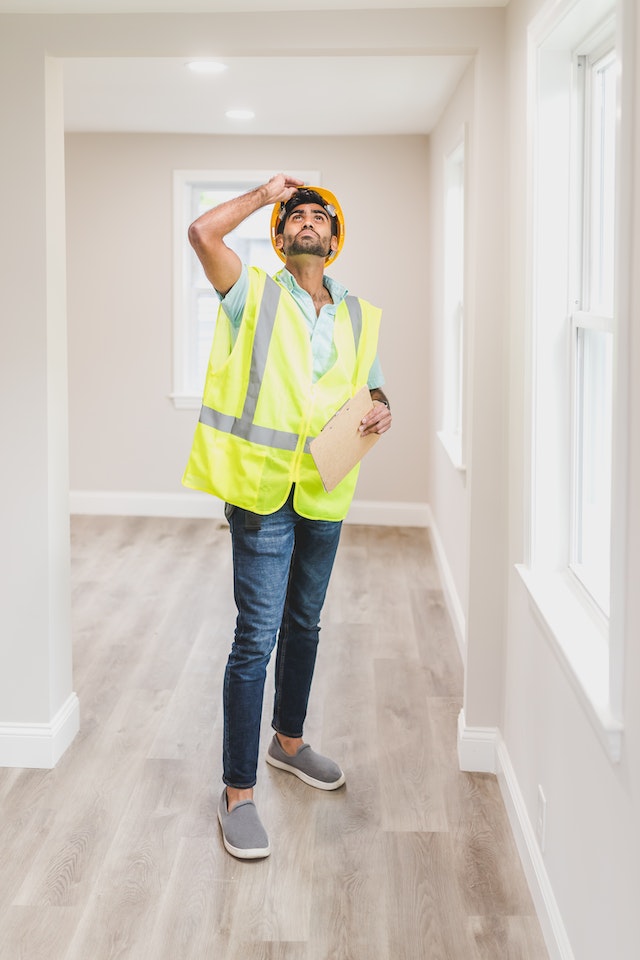
When people buy new houses, the last thing they want is for there to be any surprises with the quality. That’s why most people choose to get a home inspection before they finalize the purchase. But what exactly does a home inspector look for? Here’s a quick overview of the things they will check.
Exterior
The first thing a home inspector will do when they drive up to new houses is take a look at the home’s exterior. They will look for any signs of damage or wear and tear.
For example, water coming down the gutters should stream down to the drainage pads and be directed away from the house. Water drainage flowing towards the home can cause a flooded main area or basement in the future.
An inspector will look at the concrete and the overall exterior of the home to make sure those downspouts are taking water away from the house.
They’ll look at the siding to make sure that water can’t seep behind it. They’ll check stucco for substantial cracks where water can penetrate and cause long-term issues with mold or mildew.
Windows
The inspector will check to make sure the windows open and close. They’ll observe if they’re chipped, cracked, or broken.
For example, if windows seem foggy, it might be because the seal has been broken, making the interior susceptible to water damage and mold. Replacing windows can become costly. Your inspector will want you to be aware of any hidden expenses.
Attic
The inspector will look for proper attic ventilation. They’ll check if the insulation is effective or if it has been displaced and needs to be spread out evenly. They’ll look for any signs of water intrusion under the roof.
Plumbing
The inspector will make sure that the hot water heater comes on and that there are no leaks under the sinks. They’ll run a cycle in the dishwasher to make sure the water is routed properly and the appliance doesn’t leak.
The inspector will turn on the faucets in the sinks and showers to observe any noticeable leaks. They’ll also check for pooling in the drains, which could indicate a sewage problem.
Electrical
The inspector will check if there are enough outlets in the home. They’ll verify that the switches work and if they’re placed correctly and safely. They’ll check to make sure the electrical panel is not overloaded and that everything is effectively distributed.
HVAC
The inspector will check the condition of your furnace or air conditioner to make sure they’re installed properly.
Your inspector will likely recommend annual maintenance to extend the life of your HVAC system and make sure it runs safely and efficiently for many years to come.
Cabinets
The inspector will be able to tell you if the cabinets are made of quality materials and if they’re installed properly. Cabinets that get stuck or that don’t close properly can let dust inside or even be a safety concern.
Basement
The inspector will search the basement for evidence of water damage. A musty smell, mildew or mold development, damaged walls, and uneven flooring are indications of potential water damage.
The inspector will inspect the areas near the windows and doors in the basement to make sure that water can’t enter and cause future problems.
Foundation
A strong foundation holds a house firmly above ground. It also seals out moisture, insulates against the weather, and protects the home from movement.
The following are signs of a weak foundation:
- Noticeable cracks in the drywall or ceiling
- Doors or windows that are difficult to close
- Noticeable cracks in the drywall or ceiling
- Doors or windows that are difficult to close
Building a foundation is much more complicated than simply pouring a bed of concrete. A strong foundation must be custom-fit for its site. The builders must laboriously consider ground quality, water tables, and backfill quality to ensure a safe foundation that lasts forever.
New Houses in Charlotte, NC
A home inspection is an exciting process that can help you learn more about your new home and make sure that it is in good condition.
A professional inspector will examine the property, inside and out, and provide a written report with their findings. They are experts on what to look for in new houses. This report can be used to request any needed repairs with the builder or to make sure that you are aware of any potential maintenance advice they may have for you before you move in.





Be First to Comment